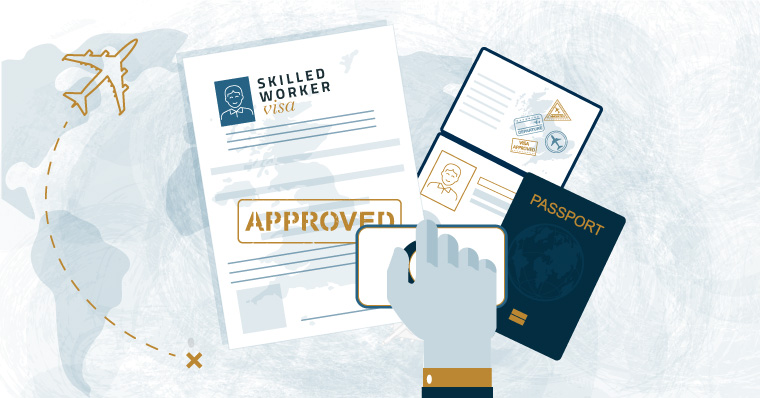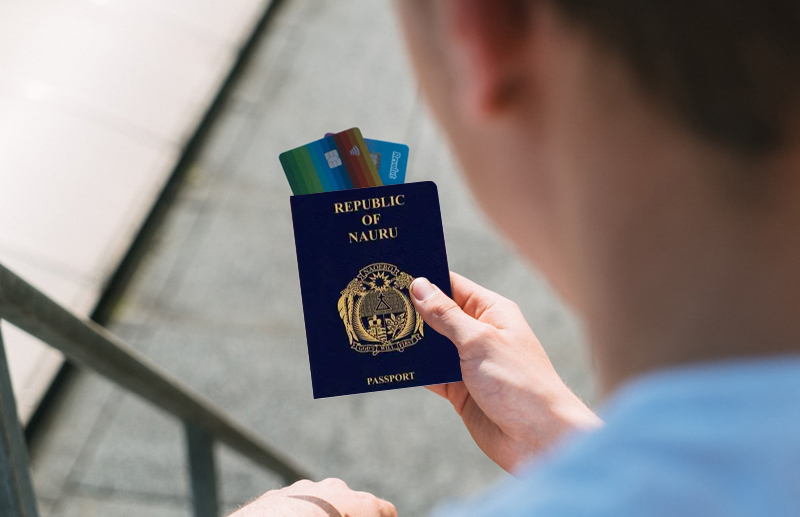Published on: 2025-05-29 ![]() Number of views: 434
Number of views: 434

If you're an entrepreneur or business owner looking to establish or expand your enterprise in the UK, the self-sponsorship route offers a strategic pathway. This route involves setting up a UK-based company, obtaining a sponsor licence, and then using that company to sponsor your own Skilled Worker visa. While not a distinct visa category, self-sponsorship leverages existing immigration routes to allow individuals to live and work in the UK through their own businesses.
Self-sponsorship allows an individual to create a UK business, obtain a sponsor licence, and sponsor themselves for a Skilled Worker visa. It is not an official visa route, but a legal use of the existing Skilled Worker pathway.
There are no specific restrictions on the type of business, provided it operates legally within the UK. Whether it's a tech startup, restaurant, or consultancy, the key is that the business is genuine and sustainable.

1. Establish a UK Company: Register your business with Companies House and set up a UK business bank account.
2. Apply for a Sponsor Licence: Your company must apply to the Home Office for a sponsor licence, demonstrating its ability to meet sponsorship duties. Required documents may include:
3. Appoint an Authorising Officer: Designate a senior person within the company who will be responsible for the sponsorship process. This individual should be based in the UK and have settled status. (exception to this UK Expansion Worker Sponsorship License)
4. Implement HR Systems: Ensure your company has robust HR processes to monitor and manage sponsored employees, complying with Home Office requirements.
5. Assign a Certificate of Sponsorship (CoS): Once the sponsor licence is approved, your company can issue a CoS to you, which is necessary for the visa application.
6. Apply for the Skilled Worker Visa: With the CoS, you can apply for the Skilled Worker visa, providing evidence of your qualifications, English language proficiency, and financial means.
In today's competitive job market, self-sponsorship offers a viable option for talented individuals who wish to contribute to the UK economy and have a credible business idea. It further allows them:

While self-sponsorship offers numerous benefits and flexibility for the individual, it can also raise concerns about the genuineness of the role—particularly when the business owner sponsors themselves. The Home Office applies stricter scrutiny in such cases; however, self-sponsorship remains a legitimate option if:
Self-sponsoring individuals often underestimate the responsibilities that come with being a sponsor. Non-compliance may lead to licence revocation and/or visa refusal. Sponsors must fulfil the following obligations:
Five Core Sponsor Duties:
Key Record-Keeping Obligations:
Key Reporting Duties:
These requirements go hand in hand with having a strong HR system in place, which is one of the key reasons for refusals in our experience. Many sponsorship licence applications are refused because clients fail to demonstrate that they have adequate HR systems to meet their sponsor obligations. However, this does not mean you must invest in expensive HR software. Depending on the nature and scale of your business, you simply need to establish a robust HR process that allows you to manage employee records effectively and maintain compliance with sponsor duties.
Individuals considering to self-sponsor themselves should have a solid financial foundation to bear the following:
This is to ensure their financial security in case if unforeseen circumstances of facing refusals which may require them to wait for six months to reapply.
While the Home Office does not prohibit a business from sponsoring its shareholder or director, but transparency is key. The key points to consider are:
While self-sponsorship offers autonomy, it's crucial to maintain compliance with UK immigration laws. This includes adhering to sponsor duties, maintaining accurate records, and ensuring timely reporting to the Home Office. Non-compliance can lead to revocation of the sponsor licence and visa.

Self-sponsorship is a strategic route for entrepreneurs seeking to establish themselves in the UK. By setting up a legitimate business and navigating the sponsorship process diligently, you can create opportunities for growth and long-term residence in the UK. Engaging with immigration professionals can provide valuable guidance to ensure a smooth application process.
At Star Jet Immigration Services, we provide tailored immigration advice based on your unique circumstances. If you're considering the self-sponsorship route and want to understand whether it aligns with your goals and eligibility, our expert team is here to guide you through every step.
Contact us today to explore your options with confidence!

 286
286As an officially authorized agent of Nauru, Speeder Immigration held an official meeting with Mr. Nicholas, Strategic Relations Manager of the “Nauru Economic and Climate Resilience Citizenship Program,” at our Manchester office in the UK.

 705
705On 22 July 2025, the UK government introduced new immigration rules that reshape the Skilled Worker visa pathway. For entrepreneurs and business owners considering the self-sponsored Skilled Worker visa route, the door remains open — but the requirements have become more selective.

 357
357In the heart of the Pacific Ocean lies Nauru, a small and peaceful island nation with a warm community and a history that once thrived on valuable phosphate resources. Today, Nauru is focused on a new chapter — one built on sustainable development, climate resilience, and economic growth. Through the Nauru Economic and Climate Resilience Citizenship Program, successful applicants can secure a safe second citizenship while directly contributing to the country’s infrastructure and environmental initiatives.

 470
470British citizenship is a privilege, not a right—and one of the biggest hurdles applicants face is proving they are of good character. Many applicants believe that if they have indefinite leave to remain, a long residence history, or no current issues, they will automatically qualify. But the reality is more complex.
Is the immigration process complicated? Don’t worry! Xingjie Immigration’s exclusive planner will tailor a personalized plan for you!

We offer free consultations to assess your needs and provide you with an opportunity to experience the high-quality service that Star Jet provides.

Our services are fully transparent, keeping you updated on progress at all times.

With our multi-to-one service model, we aim to achieve satisfactory results in the shortest possible time.

Strict confidentiality of client data is always guaranteed, with data encrypted and securely stored.

+44-7596688888
(Emergency contract number)

admin@starjetimmigration.com
Birmingham Office
Second Floor,
White House,
111 New Street,
Birmingham
B2 4EU
 0121 517 1168
0121 517 1168
 0795 668 8888
0795 668 8888
Manchester Office
St James Tower,
7 Charlotte St,
Manchester
M1 4DZ
 0161 521 9800
0161 521 9800
 0795 668 8888
0795 668 8888
Star Jet Service Ltd is an immigration law firm approved by the UK’s Immigration Advice Authority (IAA: F202331612), with offices in Birmingham and Manchester in the UK, as well as in China. Our team of highly experienced immigration lawyers provides services for the UK and other countries. Each core member of the firm has many years of industry experience, and we are committed to delivering efficient, high-quality services to clients from diverse backgrounds.All immigration lawyers and key personnel at Star Jet are based in the UK, ensuring the utmost privacy for our clients. In addition, we have dedicated Education and Property Departments, offering comprehensive, one-stop solutions to meet a wide range of client needs.
Star Jet Service Ltd is a company registered in England and Wales. Registration number: 12300174. Registered office: Second Floor, White House, 111 New Street, Birmingham B2 4EU.
Star Jet Service Ltd, trading as Star Jet Immigration Law Firm, formerly Duber Service, incorporated under the laws of England & Wales since November 2019. Star Jet Immigration Law Firm is authorised to provide immigration advice and services by the IAA.
Authorised and regulated by the IAA under number F202331612. VAT registration number: 426 4335 06.
©️2025 Star Jet Service Ltd | Privacy Policy